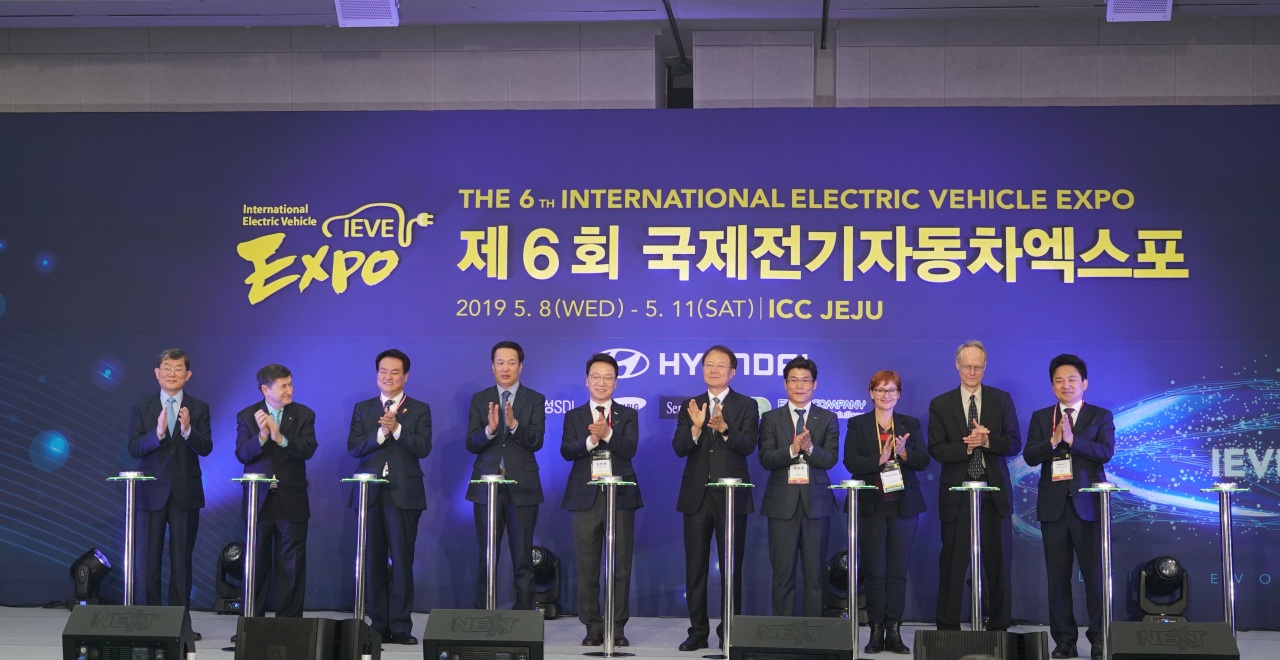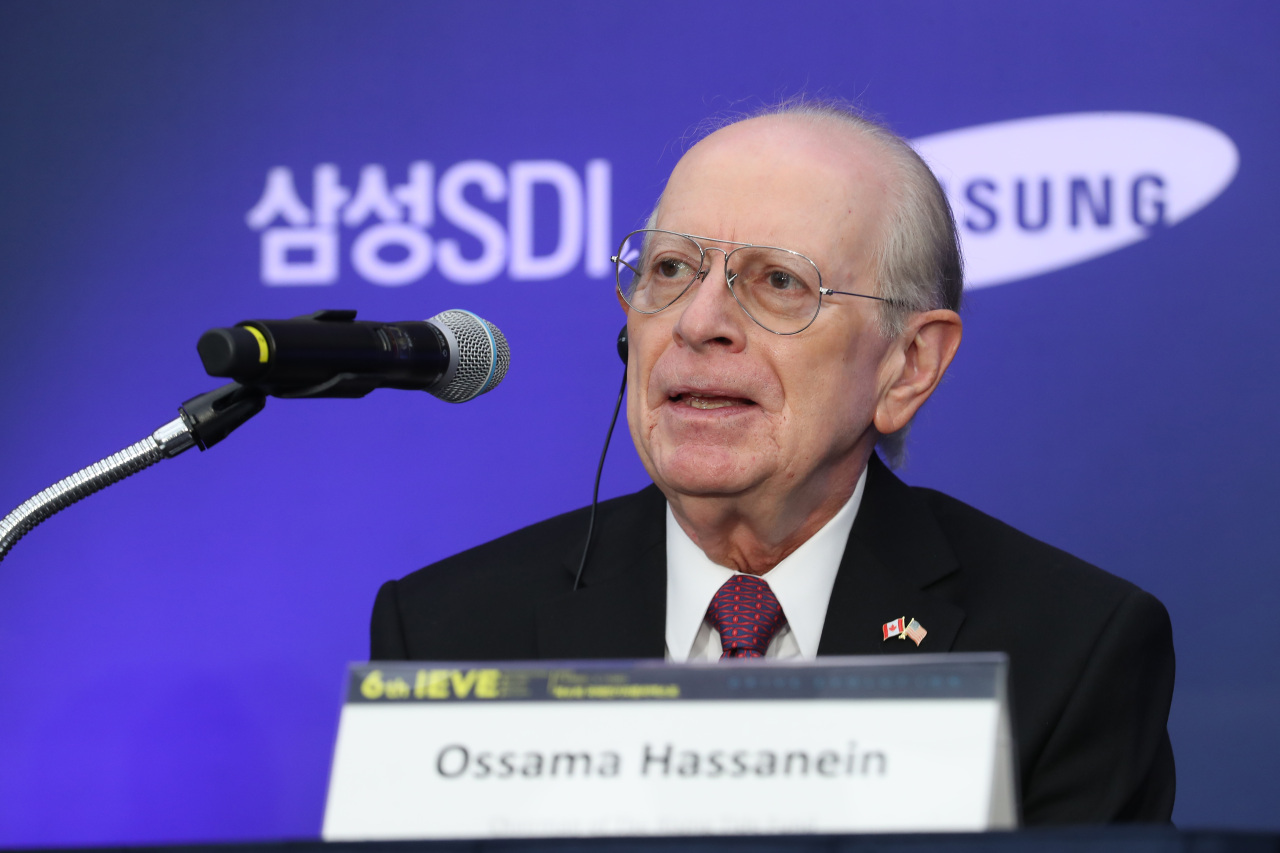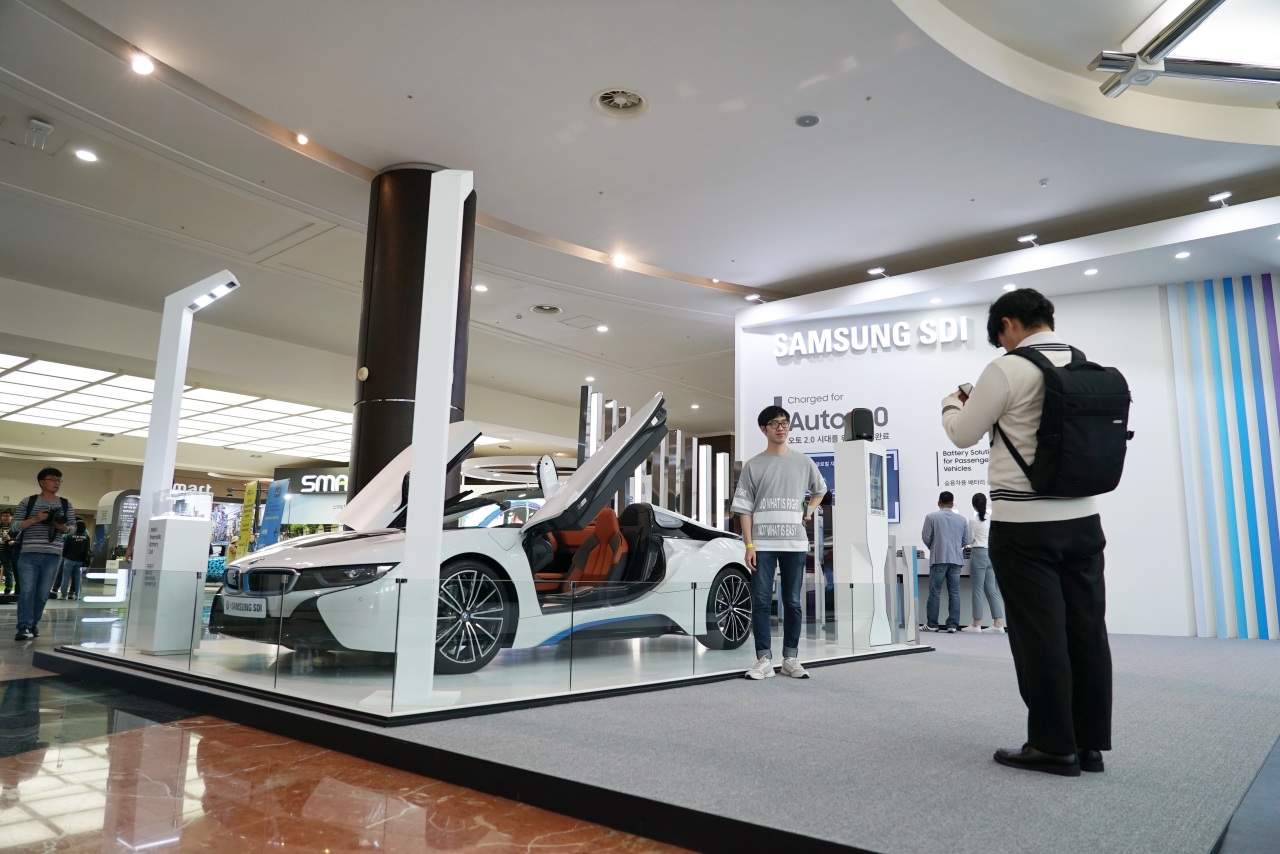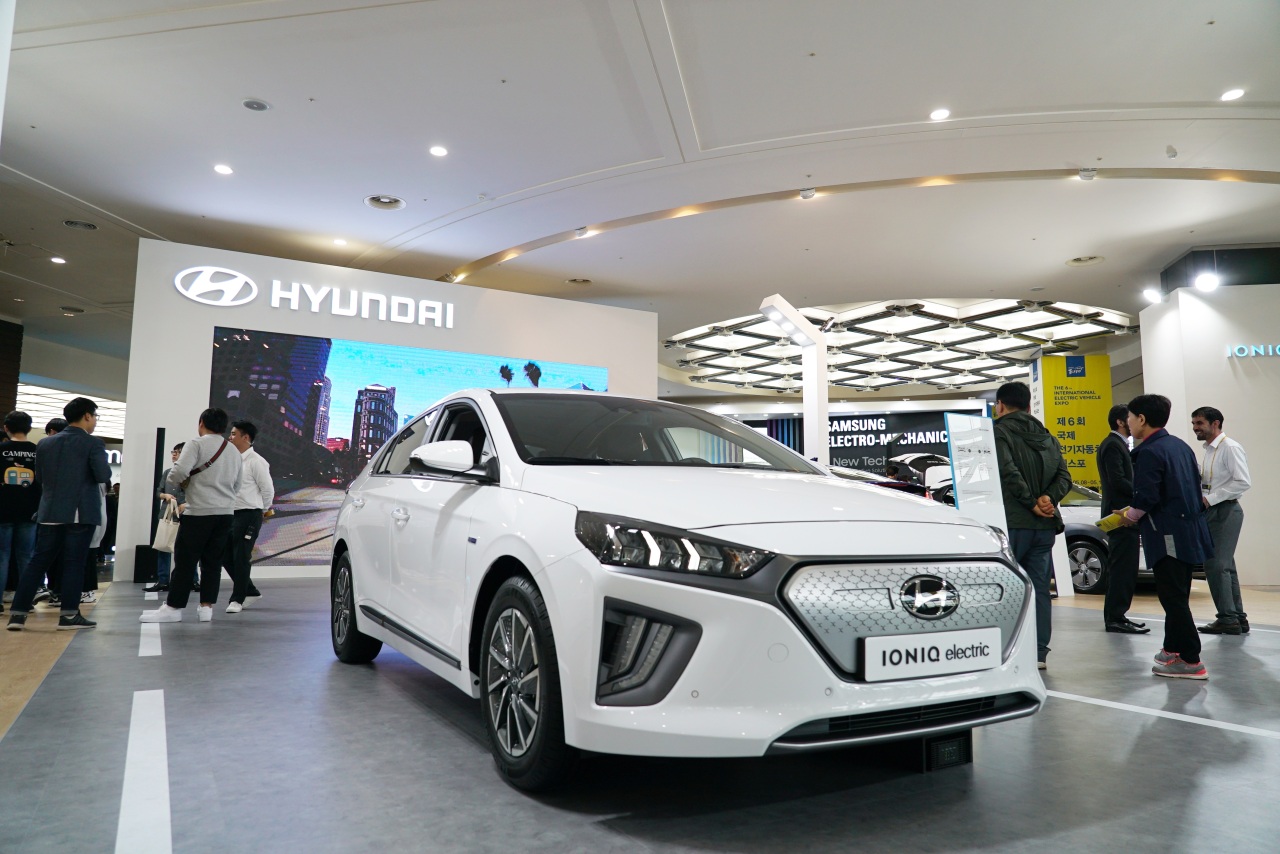EV expo shines light on SMEs, innovators, discusses future of carbon-free tech
Organizers exclude hydrogen vehicles, questioning reliability, public support
By Cho Chung-unPublished : May 8, 2019 - 15:21
SEOGWIPO, Jeju Island -- As the first and only exhibition entirely on electric vehicles, the International EV Expo kicked off its four-day run in the southern part of Jeju on Wednesday to offer wider business opportunities for small and medium-sized companies seeking to ride the wave of carbon-free evolution.
The sixth edition of the expo has opened its doors to up-and-coming companies and is presenting international conferences looking back on the development of electric vehicles and the market going forward.
The sixth edition of the expo has opened its doors to up-and-coming companies and is presenting international conferences looking back on the development of electric vehicles and the market going forward.

During his opening speech at the expo, Ossama Hassanein, chairman of the California-based Rising Tide Fund, touched on cases of successful collaboration between governments and corporations in accelerating the deployment of effective and affordable electric vehicles, and how leading companies in Silicon Valley are working on lowering the weight and cost of electric vehicles while enhancing fuel efficiency.
At a press conference earlier in the day, the investment guru -- managing over $1 billion of technology-based ventures around the world -- stressed the need for cooperation between universities and corporations.

“The center of innovation of corporations is universities. There are more than 50,000 startups from Stanford created for the last 50 years, resulting in the creation of 2.5 million jobs and $3.7 trillion in market valuation,” he said, adding that he has been looking closely at the development of lidar sensors, detectors preventing truck accidents and fifth-generation technology for autonomous driving.
Asked about the South Korean government’s push for hydrogen energy and vehicles, Hassanein did not comment directly, but said governments around the world are becoming “facilitators” of new technologies, rather than regulators, in pursuit of economic development.
Meanwhile, organizers of the expo said this year’s event focuses entirely on electric vehicles, not fuel-cell vehicles powered by hydrogen, as the latter lack reliability and public support.

The expo had invited Hyundai Motor’s FCEV Nexo last year, raising questions over its role of promoting cars powered entirely by electricity.
“We don’t know how fast hydrogen cars would become as popular as electric vehicles. There have been moves to make hydrogen technology patentable, but it would be electric vehicles that would become the most popular green cars by 2030,” said Moon Guk-hyeon, co-chairman of the organizing committee.
The expo, taking place at International Convention Center Jeju, has invited more than 150 companies, including carmakers and parts makers showcasing latest electric vehicle technologies.
Among the discussion topics will be the new market for custom-built electric vehicles -- created, for example, from old classic cars -- and prospects for expansion. There will also be a demonstration of a new electric vehicle manufacturing method using 3D printing.
Big-name participants such as Hyundai, Kia, Nissan and Jaguar Land Rover presented their latest electric vehicles at the exhibition. Hyundai unveiled the face-lifted Ioniq Electric, while Nissan rolled out the second generation of its best-selling EV Reef. British carmaker JLR presented an electric sport utility vehicle called the I-Pace. Exhibitors also included South Korean parts makers Samsung SDI and Hyundai Mobis.

Regional players, including Gangwon, North Chungcheong and Jeju provinces, joined the expo as well, promoting their infrastructural and administrative advantages to companies in the future mobility business that are looking to expand -- a reflection of intensifying competition among local governments in this area.
The ministries of commerce, environment, transport, SMEs and unification are among the event’s sponsors, along with the Rural Development Administration.
By Cho Chung-un (christory@heraldcorp.com)









![[Hello India] Hyundai Motor vows to boost 'clean mobility' in India](http://res.heraldm.com/phpwas/restmb_idxmake.php?idx=644&simg=/content/image/2024/04/25/20240425050672_0.jpg&u=)









